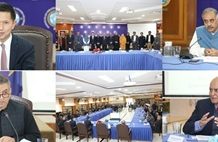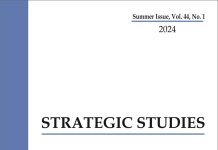Abstract:
In his second and last presidency, US President Barack Obama, conscious of his lasting legacy, has taken some bold and unprecedented foreign policy decisions. However, like President Richard Nixon, he also faces the daunting dilemma of rescuing the neo-liberal democratic ideals from the overwhelming influence of traditional geopolitical and security considerations, driving the US foreign policy for many decades. Since the end of World War II, the US pursuit of balance of power politics in Europe and East Asia helped stabilise these regions, but neglecting the same in South Asia and Middle East has made these regions unstable and prone to violent conflicts. Moreover, President Obama’s neo-liberal goals of Nuclear Zero and the Nuclear Security Summit process, disproportionately focus on merely managing the technological and geo-strategic consequences, instead of addressing the geopolitical causes of conflicts, rooted in the territory, resources and identity of various value systems, exacerbated by globalisation. This paper evaluates the multiple policy dilemmas, which will characterise President Obama’s lasting legacy, marked by the enduring conflict between neo-liberal ideals and neo-realist security imperatives.












